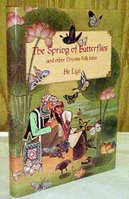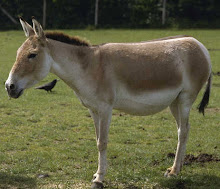“Never make friends with clever people, don’t borrow money from the newly rich, and never tell a secret to anyone, not even your wife,” he said. The young man took these words to heart, left his father and was on his way. As time passed, the young man made a good life, married, and was happy. He considered his father’s advice often, remained curious, and decided to put it to the test.
He struck up a friendship with the cleverest man in the village. Not long after, he borrowed a sum of money from a neighbor who had recently become wealthy. A short time later, he went into his herd and slaughtered a sheep, being sure to cover his clothing with blood.
Back at his home, he asked his wife to clean the bloody garments. “I will tell no one but you,” he said. “I have killed a man. I will be done for if anyone else finds out. Keep this secret between us.” His wife cleaned the clothing and for a while told no one what her husband had done. Then one day they had a terrible argument. The wife went directly to the village elders and reported all that her husband had told her. He was immediately arrested, and was being taken to be judged as a murderer.
The young man saw his friend along the way, and asked for his testimony of innocence. But the clever man, though he knew full well that only a sheep had been killed, did not want to get risk himself by getting involved, and said “I am sorry, I cannot help you. I wish you good luck.” The neighbor who had loaned money heard of the trouble, and began to worry that he would never be repaid if the young man were punished for the crime. He demanded the return of the entire sum immediately.
Eventually, the young man was taken to the khan for judgment. “I have killed no man,” he said, “only a sheep. My only crime is to doubt my father’s advice.” And the young man told the khan everything, and how his father’s words had proven true. Upon hearing the tale, the khan decided that the old man must indeed be the wisest man in the world, and the son a man of good sense. He brought both the father and son into his court, and benefited from their advice for many years to come.
====
 This tale is a retelling of “The Poor Man and the King” , collected in The Spring of Butterflies and other folktales of China's minority peoples translated by He Liyi (check your public library, where I found the book, or buy used from Amazon.com).
This tale is a retelling of “The Poor Man and the King” , collected in The Spring of Butterflies and other folktales of China's minority peoples translated by He Liyi (check your public library, where I found the book, or buy used from Amazon.com).Insulated from Soviet Russification by national borders, and from Chinese Communism by sheer distance (Xinjiang is around 1,500 miles from Beijing), the ethnic Kazakhs who fled over the mountains to northwestern China maintain a strong tradition of Kazakh language and and culture.
